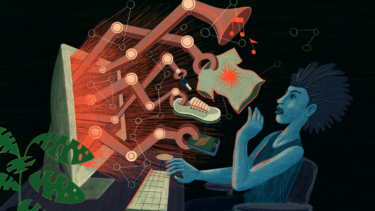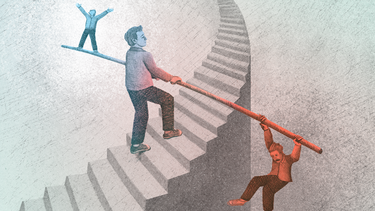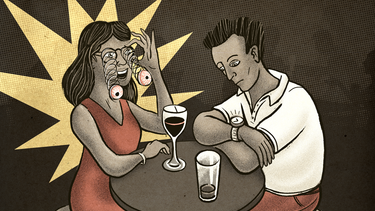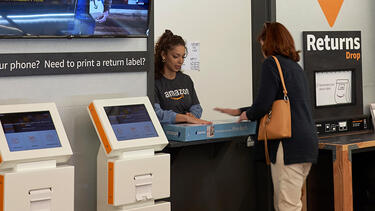Taly Reich
Building Trust with the Algorithms in Our Lives
Consumers are wary of the recommendations made by algorithms. But according to new research co-authored by Yale SOM’s Taly Reich, showing that an algorithm can learn—that it improves over time—helps to resolve this distrust.

Can Ambivalence Motivate Us to Act?
New research by Professor Taly Reich and two Yale SOM colleagues demonstrates the way in which ambivalence can help encourage action despite the prospect of failure.

A Man and a Woman Walk into a Bar: How Gender Changes the Perception of a Bad Joke
Yale SOM’s Taly Reich has found one situation in which women, rather than men, are more likely to get the benefit of the doubt: when they tell jokes that fall flat.

We’re More Likely to Stick to Decisions Rooted in Emotions
Should you trust your gut? A new study co-authored by Yale SOM’s Taly Reich finds that decisions made on the basis of feelings hold up longer in the face of new information than decisions made deliberately and rationally.

Admitting a Purchase Mistake Makes Online Reviews More Persuasive
Yale SOM’s Taly Reich has conducted a series of studies exploring the surprising value of mistakes. In her latest paper, she and her co-author show that shoppers are more likely to purchase a product after reading a review that describes making a prior purchase mistake.

Study Finally Reveals How Many Cooks It Takes to Spoil the Broth
New research co-authored by Yale SOM’s Taly Reich looks at how we perceive collaborations of different sizes, and what those perceptions mean for how companies describe the creation of their products.

How to Turn Your Mistakes into an Advantage
People and companies alike often try to hide their mistakes from public view. New research by Yale SOM’s Taly Reich reveals that sometimes you’re better off owning your gaffes.

Why Consumers Prefer Products Made by Mistake
New research by Professor Taly Reich and her collaborators suggests that revealing mistakes in designing or manufacturing a product can enhance consumer preference.
